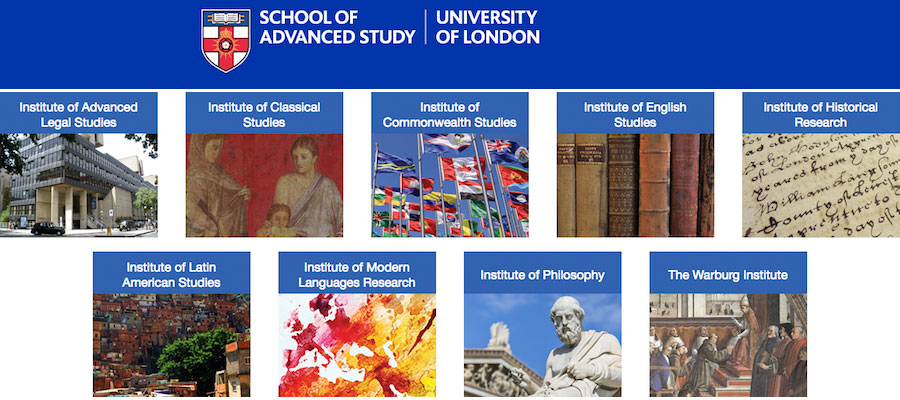For nearly a century, the Institute for Historical Research (IHR) has been offering practical support, resources and intellectual challenge to the history community. It provides support for historical scholarship for those at all stages in their academic career, through teaching, training and fellowships, through its seminars and library, and through scholarly research, publishing and bibliographic projects. The IHR operates from recently-refurbished premises in Senate House, and also has a significant online presence.
The IHR is located within the University of London’s School of Advanced Study. The School of Advanced Study is a unique institution in UK higher education. Comprising a set of postgraduate institutes and a variety of central academic initiatives, it is located within the Bloomsbury precinct of the University in the intellectual heart of London. It is the UK’s national and international centre for the support, promotion and facilitation of research in the humanities, broadly defined. It does this in collaboration with other organisations, notably the Arts and Humanities Research Council, the British Academy, learned societies and government agencies.
The IHR is searching for a new Director who will have the strategic vision to lead one of the UK’s foremost institutions within the discipline of history and the experience to be an effective advocate on behalf of the IHR and the historical profession both within the UK and Internationally. The successful candidate will be a scholar of international standing in an area of study relevant to the IHR, with proven managerial ability and a talent for leadership, engagement and academic innovation. She/he will also lead the IHR as it approaches its centenary year (2021). The new Director will therefore bring the talents and vision to capitalise on this important anniversary, and to position the Institute as central to the interests, needs and profile of the modern historical profession, in the opening decades of its second century. A secondment will be considered.
